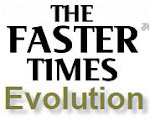During the last few months, there’s been a variety of paleontology related research coming out of the Panama Canal's spoils; I’ve seen articles on paleoclimate, paleobotany and now vertebrate paleontology.

As copied from STRI materials (PDF available HERE):
Aldo Rincón, STRI paleontology intern, unearthed a set of fossil teeth in the Panama Canal that Bruce MacFadden, curator of vertebrate paleontology at the Florida Museum of Natural History, describes as belonging to Anchitherium clarencei, a three-toed browsing horse the size of the modern donkey, living 15 to 18 million years ago.
Expanding the Panama Canal to make way for super-sized ships is providing geologists and paleontologists with rare finds. Carlos Jaramillo, STRI stratigrapher, has, in collaboration with the University of Florida and the Panama Canal Authority, organized a team of researchers and students who move in following dynamite blasts to map and collect exposed fossils.

"This is one of very few places in the tropics where we have access to fresh outcrops before they are washed away by torrential rains or overgrown by vegetation, and we expect the fossils that we have been salvaging to resolve some major scientific mysteries," said Jaramillo. "What geological forces combined to create the Panama land bridge? Were the flora and fauna of Panama before the land bridge closed similar to those of North America, or did they include other elements?"
The latest finding appears in the Journal of Paleontology, vol. 83: 489-492.
Rincón, MacFadden, Jaramillo

Good stuff…
Gregory Retallack (University of Oregon) and Michael Kirby (STRI) have also been actively publishing on materials from the Canal’s excavations. I plan to post about some of their work over the next few days - so keeping it brief for now.
Gregory Retallack (University of Oregon) and Michael Kirby (STRI) have also been actively publishing on materials from the Canal’s excavations. I plan to post about some of their work over the next few days - so keeping it brief for now.
Anchitherium Image Credits: FMNH





























No comments:
Post a Comment